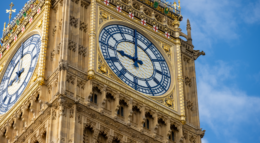
The government’s levelling up agenda is on track to fail rural areas
With new research revealing that England's rural communities are at risk of losing out in the government's levelling up agenda, Graham Biggs argues that the approach must include more rural-relevant indicators if it is to truly tackle rural disadvantage.
In February the government published its long-awaited levelling up white paper to set out a clear mission of how it would tackle levelling up and identify the areas in greatest need of extra funding across the country. Within the white paper, a range of metrics were identified to evaluate the needs of areas for levelling up and to monitor progress. Yet, the paper was almost silent on rural disadvantage and how it will be addressed – meaning that 12 million rural residents are at risk of being ignored by the levelling up agenda.
The case for greater funding for rural communities could not be more apparent, and urgent problems must be addressed if rural areas are to level up with the rest of the country. There is no doubt that there are many areas in need nationally, especially in light of the cost-of-living crisis, but for the needs of rural populations to be at risk of being left out of the framework due to the metrics to be used is a cause for concern.
The Rural Services Network's (RSN) recent report, Rural as a region: the hidden challenge for Levelling Up, reveals that if rural England was to be thought of as its own region, it would – based on the government's own white paper headline metrics – have a greater need for levelling up than any other region. The report compares all the headline metrics across which rural performance can be measured against the nine English regions and this 'rural region' has on average further to level up than any other.
Current metrics are too narrow and focus on closing the gap between the regions rather than within regions, risking leaving many communities behind. This causes problems, because it is widely acknowledged that the differences within regions are greater than the differences between them. Inequalities within regions, often linked to limited local employment prospects, lower earnings, poor transport networks, house price to local earnings ratio and weak connectivity, particularly affect rural economies. Failing to account for this will put the levelling up agenda on the path for failure.
For example, employment rates in rural areas show higher levels of employment, but this metric fails to account for the quality and security of that employment, since many rural jobs are low-paid and seasonal. In addition, looking at gross disposable household income alone doesn't account for the often-higher costs of living in rural areas, which are generally driven by higher fuel costs, as residents may need to drive a car to get around when no public transport is available and must travel longer distances to access crucial public services. These metrics are only telling part of the story and so relying on them, without understanding additional contributing factors, risks leaving rural England behind.
If the government is to truly meet the objectives set out in its white paper, they must more successfully identify those areas most in need of levelling up and include additional metrics to support those already in the paper to create a more positive impact. Whilst it's important to recognise that the white paper cannot include every metric, additional metrics that reflect and demonstrate some of the underlying causes of disadvantage in rural areas will help to form a more accurate picture of the areas most in need, to ensure they are receiving the correct support.
The RSN's report identifies the additional metrics that would help government achieve its levelling up objectives. These include, but are not limited to: the proportion of households in fuel poverty, workplace-based income, house price to local earnings ratio, rates of seasonal employment, frequency of public transport services to access key services and percentage of premises with super-fast broadband.
Without taking these into account, levelling up support may just end up widening the gap between rural communities and their urban counterparts, instead of creating a level playing field. There is no doubt that the government's levelling up objectives will not be met if policies further increase the gaps between areas within England's regions.
In response to the report a Department for Levelling Up, Housing & Communities spokesperson said:
"Rural areas are at the heart of our levelling up agenda. Our white paper is a plan for everyone, including rural communities, who rightly expect and deserve access to better services, quicker transport and quality education.
"We've designed our funds to ensure we reach places most in need and we continue to keep them under review as we develop each levelling up mission."
We are looking for clear actions to support what the government has said in response to the report – not just fine words. Levelling up will be entirely meaningless if rural communities' needs are not addressed and it's time to put rural areas firmly into the levelling up agenda. There are 12 million reasons why.









